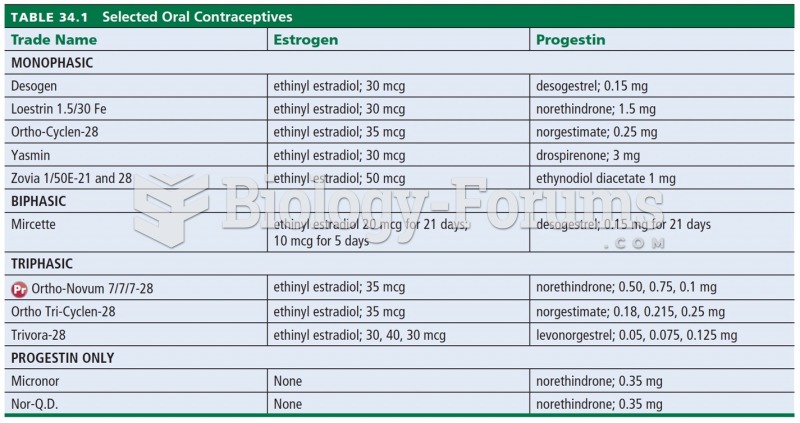|
|
|
People about to have surgery must tell their health care providers about all supplements they take.
More than one-third of adult Americans are obese. Diseases that kill the largest number of people annually, such as heart disease, cancer, diabetes, stroke, and hypertension, can be attributed to diet.
Anesthesia awareness is a potentially disturbing adverse effect wherein patients who have been paralyzed with muscle relaxants may awaken. They may be aware of their surroundings but unable to communicate or move. Neurologic monitoring equipment that helps to more closely check the patient's anesthesia stages is now available to avoid the occurrence of anesthesia awareness.
More than 2,500 barbiturates have been synthesized. At the height of their popularity, about 50 were marketed for human use.
Asthma cases in Americans are about 75% higher today than they were in 1980.







